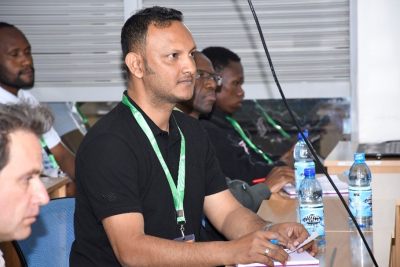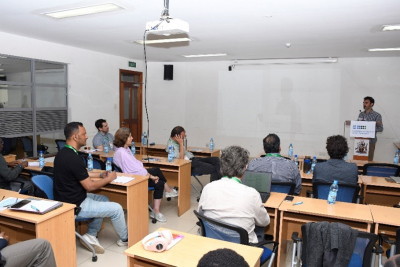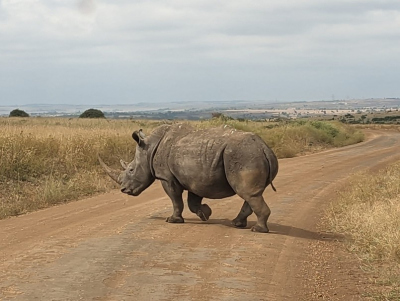Jewel Das
Report of GLOMAR PhD student Jewel Das about his participation in the International Association for the Study of the Commons (IASC) conference in Nairobi, Kenya from 19 to 24 June 2023
Participating in the International Association for the Study of the Commons (IASC) conference on Commons with the motto ‘the commons we want’ in Nairobi, Kenya (https://2023.iasc-commons.org/) offered me a superb platform to present my research, share my findings, meet interdisciplinary scientists, and learn different research worldwide. This week-long hybrid (virtual and in-person) international conference provided opportunities to learn about the progress, achievements, and challenges of researchers with similar interests in my research. IASC brought about various experts, interdisciplinary scientists, and early carer researchers from many parts of the world together to this conference. I got the chance to present, exchange my research with some of them and receive feedback to better shape my next plans.
My presentation was on 20 June 2023 in the ‘Grabbing coastal and marine commons’ session. I presented my research on coastal conflicts to some renowned scientists who work globally in this particular interest and context. It was a privilege to discuss my research findings and the way forward with them in person. I received some constructive feedback and guidelines about my next steps in the field. The 11 sub-themes of this conference made it comprehensive to build genuine resilience to meet one of the SDG goals called ‘leaving no one behind’. Besides these, the conference was full of sessions about capacity building in the publication process, afternoon panels on indigenous peoples’ contribution, climate vulnerabilities, taking back the Commons, networking sessions, and regional workshops. These events were very specific and focused. Almost 9 parallel sessions each day were a bit compact but still very effective for me to choose the right session based on my interest. I participated in many other sessions which gave me insights, perspectives, thoughts, and views that can potentially cater to my further research in this field. Moreover, avenues were open for early career researchers to meet after the event as the venue provides a good shape for people to exchange ideas, research plans, and collaboration.
The venue, the University of Nairobi Tower was well-equipped with logistics to welcome researchers in terms of sufficient spaces, refreshments, and interaction points. I met many researchers who might be potential in my future loop of research. Furthermore, there were sessions on the journals IASC facilitate to publish. I joined one of the sessions which talked about the whole process of publishing in the International Journal of the Commons (IJC). I found my particular interest to submit one of my research works to this journal. Also, I have been affiliated with IASC early career networks to be in touch regularly through emails, slack apps, and updating both ways. It definitely helps me to connect with international researchers in my field and develop, collaborate, and progress.
Moreover, there was an excursion day. It was amazing. This event brought the participants to the field in Nairobi. Our group visited Nairobi National Park where we enjoyed wildlife, and culture, and experienced the coexistence of indigenous people and wildlife. The park was well-managed by the government with the interest of conservation and public access. The visit to this safari park was under ample security and guided activities which was a necessity before diving into the wild.
On the same day afternoon, there was a cultural show for the participants to enjoy. This was also wonderful in the sense that it brought up most of the indigenous and ethnic community cultural events which were unique and encouraged diversity and inclusion.
The end session of the conference was with a panel called ‘taking back the Commons’. It addressed the potential of forward-focusing decommodification, deconcentration and democratization. The debate was on finding alternative development pathways so that the society-nature nexus sustain. It ended with a conference dinner where almost all the participants joined and had their final interaction to the way of future initiatives and collaboration.
To conclude, joining the IASC conference and its network paved the way for me the focus on a long-term relationship in marine and coastal Commons research. I can recommend that interdisciplinary researchers, who have an interest in the Commons, certainly look forward to this annual event because it gives a full picture of the setting of research in terms of advancement, current state, and way forward research on Commons.
I would like to express my sincere gratitude to the GLOMAR and ZMT for funding me to attend this conference. It would not be possible to participate in this conference and build up capacity and networks without their support.






